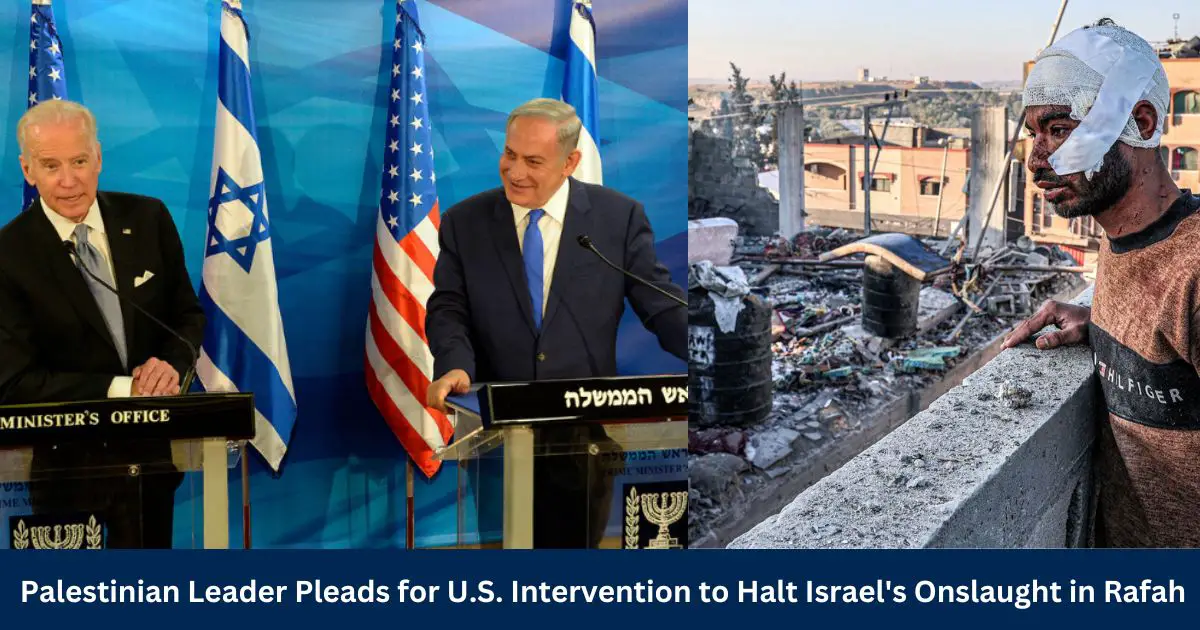Amidst the chaos and devastation, a desperate plea from Palestinian leaders for U.S. intervention has emerged, highlighting the urgent need for international action to address the humanitarian crisis unfolding in the region. This article will delve into the background of the conflict, the recent escalation in Rafah, and the implications of U.S. involvement in resolving the crisis.
Understanding the Conflict:p
The conflict between Israel and Palestine is deeply rooted in decades of historical grievances, territorial disputes, and competing national aspirations. At the heart of the conflict lies the Israeli occupation of Palestinian territories, ongoing since the Arab-Israeli war of 1967. Palestinians have long sought to establish an independent state in the West Bank, Gaza Strip, and East Jerusalem, areas currently under Israeli control.
However, efforts to achieve a lasting peace agreement have been repeatedly thwarted by violence, political stalemates, and entrenched mistrust between the two sides. The situation is further complicated by the presence of Israeli settlements in the occupied territories, which are considered illegal under international law and a major obstacle to peace negotiations.
Recent Escalation in Rafah:
The city of Rafah, located in the southern Gaza Strip, has been a flashpoint in the Israeli-Palestinian conflict for years. In recent weeks, tensions in the region have escalated dramatically, culminating in a full-scale military onslaught by Israeli forces. Reports from Rafah paint a grim picture of widespread destruction, civilian casualties, and humanitarian suffering.
Israeli authorities justify their actions as necessary measures to combat terrorism and protect Israeli civilians from rocket attacks launched by Palestinian militant groups based in Gaza. However, Palestinian leaders and human rights organizations have condemned Israel’s military campaign as disproportionate and indiscriminate, resulting in the loss of innocent lives and the displacement of thousands of civilians.
The Plea for U.S. Intervention:
Amidst the devastation unfolding in Rafah, Palestinian leaders have issued a desperate plea for U.S. intervention to halt Israel’s onslaught and facilitate a peaceful resolution to the conflict. The United States, as a key ally of Israel and a major player in the Middle East, wields significant influence over the region’s dynamics and has traditionally played a leading role in brokering peace talks between Israelis and Palestinians.
However, the Trump administration’s unwavering support for Israel and its controversial policies, such as relocating the U.S. embassy to Jerusalem and recognizing Israeli sovereignty over the Golan Heights, have eroded America’s credibility as an impartial mediator in the eyes of many Palestinians. Nevertheless, Palestinian leaders remain hopeful that the Biden administration will adopt a more balanced approach and actively engage in efforts to end the violence in Rafah.
The Implications of U.S. Involvement:
The prospect of U.S. intervention in the Israeli-Palestinian conflict raises a host of complex geopolitical considerations and potential ramifications. On one hand, American intervention could help de-escalate tensions, facilitate humanitarian assistance to the besieged population of Rafah, and create an environment conducive to renewed peace negotiations between Israelis and Palestinians.
However, the United States’ close ties with Israel and its historical bias towards Israeli interests could undermine its credibility as a neutral mediator and exacerbate existing divisions between the two sides. Moreover, any attempt by the U.S. to pressure Israel into halting its military campaign in Rafah may face stiff resistance from Israeli authorities and their allies in Washington, who view such actions as tantamount to undermining Israel’s right to self-defense.
Nevertheless, the humanitarian imperative of preventing further bloodshed and alleviating the suffering of civilians in Rafah cannot be ignored. The international community, including the United States, has a moral obligation to uphold the principles of human rights and respect for civilian life, regardless of political considerations or strategic interests.
Conclusion:
The plight of the people of Rafah underscores the urgent need for a peaceful resolution to the Israeli-Palestinian conflict and the vital role that international intervention can play in achieving that goal. As Palestinian leaders plead for U.S. intervention to halt Israel’s onslaught, the world watches with bated breath, hoping for a swift end to the violence and a return to negotiations aimed at achieving a just and lasting peace in the region. Only time will tell whether the voices of the oppressed in Rafah will be heard and heeded by the powers that be.

